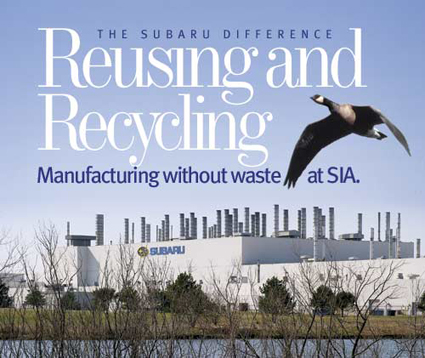[youtube=http://www.youtube.com/v/M_N-_rZ642s&hl=en&fs=1]
Kelly Blue Book Video Review of the Ford Focus
Earlier this week, Ford announced that they are retooling their manufacturing facility in Michigan, which previously built SUVs, to now produce the small and fuel-efficient Ford Focus in 2010, and the battery-electric Ford Focus by 2011.
With this investment of $550 million worth, Ford continues the track to deliver its promise to bring four new electric vehicles to the U.S. by 2012 and will support approximately 3,200 jobs.
The Inspired Economist interviewed Jennifer Moore, Corporate News Manager at Ford. Here’s what she had to say.
IE: Why is Ford making over an SUV facility to manufacture the Ford Focus? Will Ford completely halt….or merely downsize its production of SUVs and Lincoln Navigators?
JM: The retooling of this facility to make small cars and the battery electric vehicle is a part of our overall transformation plan to convert some of our truck plants to small car facilities, leverage our global assets and produce smaller, more fuel efficient vehicles for our customers.
We have not halted production of the Lincoln Navigator and Ford Expedition – production was transferred to our Kentucky Truck plant. We still believe there is a market for large SUVs for customers who desire the size and capability of the vehicles, but we recognize that market will clearly be smaller than it was in the past. As part of our transformation, we are balancing our product portfolio and that is the reason we are retooling the Michigan Assembly Plant.
IE: This push for green cars….how long has it been part of Ford’s agenda? Is it part of a strategy to ‘survive’ in the new green economy, given the U.S. auto industry disaster…and Ford’s own huge losses last year and Q1 of this year? Or has the Ford Focus been in the works for longer?
JM: The short answer is that the Ford Focus has been in the works for some time. The transformation plan to retool truck and SUV factories was announced last year.
We have been working for years to develop more fuel efficient vehicles for the market. As you know, it takes several years to design, engineer and produce a new vehicle. In November 2007 we shared our Blueprint for Sustainability, which essentially laid out our future technology and product plans to deliver more fuel efficient vehicles that emit reduced CO2 emissions.
We noted that there is no “silver bullet solution” – no single technology that could be adopted overnight that would address all of the issues related to climate change and energy security. We believe there are a range of technologies that will help us, as an automaker, be a part of the solution. Among our plans, continual improvement of the internal combustion engine, utilizing downsize and boost EcoBoost engines that will deliver better fuel economy and fewer greenhouse gas emissions versus larger displacement engines, while still delivering the performance of the larger engines. We also look to implementation of six speed transmissions, electric power assist steering, weight reduction and aerodynamic improvements to help us achieve fuel efficiency gains. At the same time we are doubling our hybrid offerings and our hybrid production…..and this year announced an aggressive electrification plan.
We know the market is shifting and we are changing our product line up to include more small cars and cross overs with less emphasis on large SUVs and trucks in order to meet that market demand. The shift is already underway and we have new products hitting the marketplace now and in the coming years that will match the shift in demand.
IE: What are the features of the car? What is a “global C-car platform?”
We have not yet revealed specific features of the next generation Ford Focus which goes into production late next year.
Global C Car platform….Platform refers to the underpinnings of a vehicle..the chassis – the sheet metal around that chassis referred to as the “top hat” which is, in effect, the sheet metal that gives each car its distinctive style and look. Using global platforms, creating multiple models from one basic platform, allows us to achieve significant economies of scale. Utilizing one common platform also communizes parts, again leading to economies of scale.
In Europe vehicles based on the C platform are being made in Saar Louis, Valencia Spain and St. Petersburg Russia. The global C car platform is truly global, serving as the basis for models that can be built around the globe, but built in each region with the styling and configurations that make sense for individual, regional markets.
IE: Is Ford outsourcing the battery manufacture?
JM: Ford is not a battery manufacturer. We have not yet announced who the battery supplier will be for the BEV Focus.
IE: How will this vehicle compare to say GE’s electric vehicle which uses dual batteries for greater efficiency?
JM: Ford’s FOCUS BEV will be a pure battery electric vehicle vs. the GM volt which utilizes a small gasoline internal combustion engine as a range extender.
We will bring two battery electric vehicles to market, the Transit Connect BEV commercial van in 2010, the BEV Focus, a 5 passenger sedan, in 2011, the next generation hybrid and a Plug-In Hybrid electric vehicle in 2012. We each chart our own technology and product path.
IE: Now, the $550 million that have been allocated to this project, does this come from stimulus money?
JM: To date, none of the money that Congress allocated to support development of increased fuel efficiency and alternative technology vehicles (not the same as the bridge loans which we did not seek) has been allocated to any automaker.
IE: Where does Ford see the U.S. Auto industry going? Where do they see themselves?
JM: These are challenging economic times for the entire auto industry. Even as auto sales remain depressed, Ford has seen its retail market share rise above year ago levels. We believe that is the result of consumer reaction to our new products. We will continue to deliver products to the marketplace to satisfy consumer demands and that means shifting our product lineup to more emphasis on cars and crossovers, with a smaller large SUV and truck market.
It means increasing our hybrid offerings as we did this year…adding the Ford Fusion Hybrid and Mercury Milan hybrid to our line up..as the most fuel efficient mid size sedans in the market (at 41 mpg city driving) and it means moving toward increased electrification of vehicles. Even as we continue to develop our technology and vehicles we believe the country needs a comprehensive energy policy in order to support development of these vehicles and to provide more certainty surrounding energy (fuel costs) which are such a significant driver of consumer buyer behavior.



